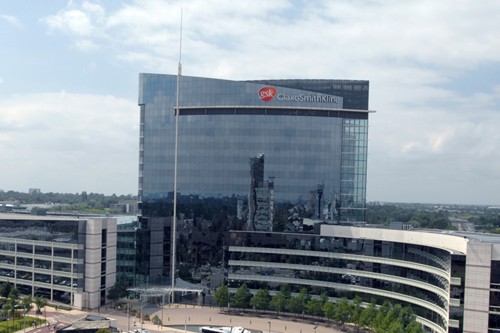
GlaxoSmithKline (GSK) today posted sales and profit ahead of expectations in the second quarter, but its earnings call was overshadowed by the chief executive Sir Andrew Witty’s first public comment on the allegations of fraud in China.
Sir Andrew said the situation would clearly have an effect on its performance in China, although he would not predict the scale of the impact until an internal investigation into the bribery allegations is completed.
“We are at an inflection point … in terms of how the Chinese government wants to see their entire healthcare sector modernise,” he said, whilst declining to be drawn on whether other pharma companies may be subjected to the government’s probe.
Many pharma companies in China will be nervous – given that there is widely considered to be a culture of bribery and kickbacks within the Chinese $522bn healthcare system – and stories of investigations into other drugmakers are already starting to emerge.
GSK’s head office was completely unaware of the activities of senior executives in China, said Sir Andrew. If their actions are confirmed, he added, those involved had defrauded both the company and the Chinese healthcare system, which is facing major challenges including escalating levels of hepatitis B, respiratory disease and diabetes.
“We support the efforts of the Chinese government to reform the medical sector and we are open to looking at all ideas to improve affordability and access to our medicines,” said Sir Andrew.
Operating profit dips
Getting to the results, GSK revealed that operating profit was down 2 per cent to £1.94bn ($2.97bn) – a little better than expected – while sales rose 2 per cent to £6.62bn, also ahead of expectations thanks to another buoyant performance by respiratory blockbuster Advair/Seretide (salmeterol and fluticasone).
Sales of Advair were 5 per cent to £1.36bn in the second quarter, and the product looks likely to be the engine for GSK over the next few years, despite the threat of patent expiry in 2016. Generic competition in the US is “not likely for several years,” according to Sir Andrew, alluding to stricter regulatory hurdles for new asthma drugs in the US.
Among other products, benign prostatic hyperplasia drug Avodart (dutasteride) had a good quarter, rising 12 per cent to £221m, while sales of Benlysta (belimumab) for lupus more than doubled to £38m and childhood vaccine Infanrix/Pediarix gained 18 per cent to £218m.
Generic rivals impacted epilepsy treatment Lamictal (lamotrigine), down 8 per cent to £63m, while heart disease drug Lovaza (omega-3-acid ethyl esters) held firm at £161m despite competition.
Witty also updated on the firm’s restructuring drive in Europe, noting that GSK’s headcount in sales was down about 15 per cent in Europe, and this has been accompanied by a re-deployment of resources with gains in respiratory, oncology and vaccines which he said are “three big growth franchises”.




